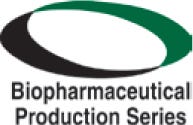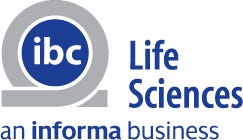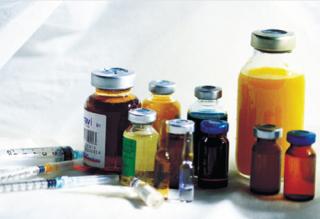IBC's Inaugural Drug Product Quality SummitIBC's Inaugural Drug Product Quality Summit
October 1, 2012
The vast majority of drug shortages — 82% of the 168 products in short supply — are sterile injectables. According to an IMS Institute for Healthcare Informatics report from November 2011, many are linked to fill– finish deficiencies. In addition to supply shortages, medicines can be delayed in reaching patients due to contaminated raw materials, findings of particulates, extractables and leachables, vial stopper and glass problems or interactions with product, and even cross contamination.


IBC’s Drug Product Quality Summit is the only event that focuses on all those nightmares — and how you can prevent them from coming true. The program focuses on hot-button issues that have cost the industry millions of dollars from FDA Form 483s, clinical holds, and lots rejected because of quality problems. This is the one event at which quality, technical, and regulatory professionals can quickly learn about the most recent failures and findings that have caused drug shortages, plant closings, and expensive product loss.
Tracks
Risk Management for Raw Materials and Supply Chain: Learn how to comply with increased regulatory expectations for supply chain oversight while working with suppliers, using risk assessment and management tools to ensure quality.
Fill–Finish Manufacturing — Current Challenges and Solutions: Ensure robust, trouble-free fill and finish operations with this in-depth session covering the latest processes, technologies, and tools.
Investigations of Quality Deviations — Lessons Learned: Prepare for the “what-ifs” and hear how the experts deal with quality deviations.
Glass Quality, Primary Packaging, and Devices: The FDA is increasing scrutiny on particles in finished products and interactions with containers. Learn how to avoid these issues and what to do if they arise.

Two Interactive Panel Discussions
To help you prevent last-minute manufacturing dilemmas: Compatibility among Formulation, Products, Processing Equipment, Filling Processes, and Delivery Devices with panelists from IMA Life, Boehringer-Ingelheim, Pfizer, and Acceleron.
To help you you plan for future technologies: Isolators vs. RABS (Pros and Cons) with panelists from Pfizer, Boehringer-Ingelheim, Fresenius Kabi, and IMA Life comparing isolators and restricted-access barrior systems.
Case Studies
Case studies offer tools you can use from industry leaders:
Improving quality systems at Hospira through in-depth investigations of deviations
Seattle Genetics on fill–finish process development of antibody–drug conjugates
Pfizer’s risk assessment of multiproduct facilities — challenges of and solutions for assessing global aseptic manufacturing
Optimizing filling operations at Abbott.
Featured Presentations
Get FDA insight on Container Closure Integrity Testing with Destry Sillivan (senior regulatory review officer at FDA CBER).
Avoid product-release delays, recalls, clinical holds, 483s, and drug shortages:
Ensure raw material and supply chain integrity with current reports from ImClone, Genentech, Acceleron, Baxter, and Genzyme.
Understand and avoid the pitfalls in fill–finish manufacturing with unpublished data and new presentations from Seattle Genetics, Pfizer, Centocor, Abbott, and Fresenius Kabi.
Learn best practices for investigations into quality deviations (including particulates) from Hospira, Amgen, and University of Colorado.
Reduce subvisible particles, prevent glass-quality issues, and ensure compatibility with primary packaging materials based on insight from FDA, Baxter, West Pharma, and BD.
Register Now
Save 20%! BioProcess International readers who register with priority code DPQ12BPIFE will save 20% off the standard conference rates (a >$400 savings). Online registration is available at the website below or by calling 1-800-390-4078. This offer is for new registrations only.
Who Should Attend: Specialists in fill–finish, formulation, analytical development, regulatory affairs, pharmaceutical development, quality assurance and quality operations, technical operations and manufacturing sciences, drug-product manufacturing, clinical supply chain, procurement, process development, and engineering will all benefit from this program.
You May Also Like





